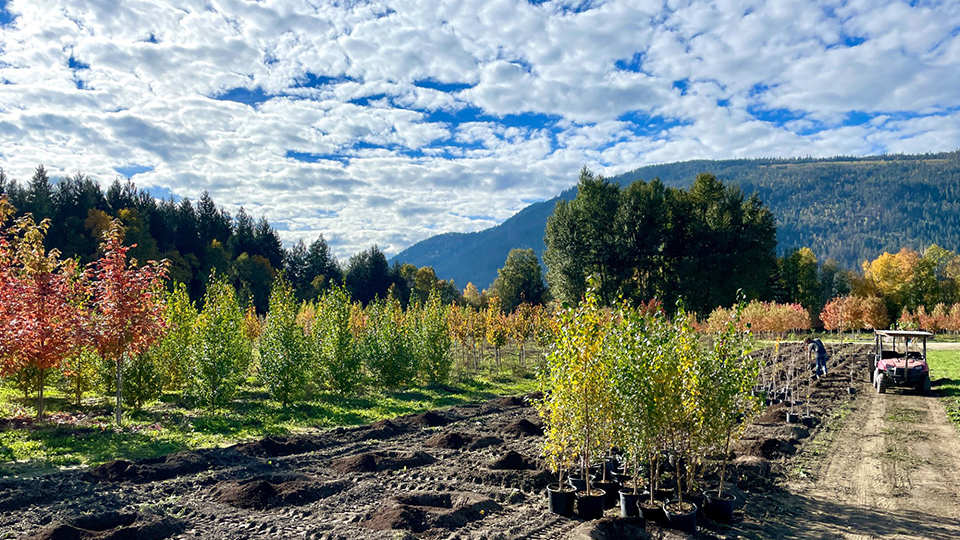
When it comes to adapting to one’s environment, you can’t beat a farmer. Climate change, however, and its potential impact on food production, presents an unprecedented assortment of challenges.
This is why IAF felt it was important to support the BC Agriculture Council (BCAC) in assessing the risks and opportunities that climate change could pose for BC’s agricultural sector. Thanks to the input provided by producers across the province, a series of reports are now available which highlight potential climate change impacts for BC agriculture at a regional and commodity specific level, as well as possible approaches to support adaptation efforts.
Among other challenges, producers could contend with an increase of extreme precipitation events in spring and fall, more extended dry periods in the summer, and associated shifts in stream flow and water supply. Difficulty managing pest, disease and invasive plant outbreaks is also a concern, given possible shifts in their range, distribution and survival rates. Perhaps the biggest obstacle to overcome, however, is raising awareness of these potential risks.
“It’s a common misconception that climate change just means warmer and more favourable conditions for food production in BC,” says Allen James, Chair of BCAC’s Climate Action Initiative, “but the projected changes would create a more complex and challenging environment for BC’s agricultural producers.”
So will BC be prepared for these challenges?
“We’re on the right path,” according to Emily MacNair, Coordinator of the Climate Action Initiative. Managing climate change impacts to BC’s food system will involve decisions, infrastructure and resources that “go well beyond the farm gate.”
“Adapting to climate change is a collective challenge,” MacNair observes. “Planning and collaboration are needed in our communities and the province as a whole.”
Despite their awareness of the potential risks facing agricultural producers, both MacNair and James remain confident about the sector’s ability to adapt and thrive.
“The assessment has provided a critical foundation to help enhance BC agriculture in a changing climate,” James emphasizes. “Successful adaptation depends on the participation and leadership of the industry, and BC agriculture is well positioned to assume this role.”
For more information on the BC Agriculture Climate Change Adaptation Risk & Opportunity Assessment please visit: http://www.bcagclimateaction.ca/
Funding: $72,114 provided through the former federal-provincial Safety Net framework and Sustaining Fund. (A0630)









